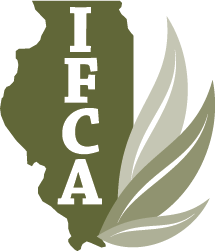New Requirements for Dicamba Application in 2019 - Operators need Applicator Designation
On October 31, 2018 the U.S. Environmental Protection Agency (EPA) announced that registration Engenia, Xtendimax and FeXapan will be extended to December 20, 2020. The announcement indicated that EPA has reviewed substantial amounts of new information and concluded that the continued registration of the dicamba products meets FIFRA’s registration standards. The Agency has also determined that extending these registrations with the new safety measures will not affect endangered species. The Press Release may be found here.
The key changes include:
- Two-year registration (until December 20, 2020)
- Only certified applicators may apply dicamba over the top (those working under the supervision of a certified applicator may no longer make applications)
- Prohibit over-the-top application of dicamba on soybeans 45 days after planting and cotton 60 days after planting
- For cotton, limit the number of over-the-top applications from 4 to 2 (soybeans remain at 2 OTT applications)
- Applications will be allowed only from 1 hour after sunrise to 2 hours before sunset
- In counties where endangered species may exist, the downwind buffer will remain at 110 feet and there will be a new 57-foot buffer around the other sides of the field (the 110-foot downwind buffer applies to all applications, not just in counties where endangered species may exist)
- Clarify training period for 2019 and beyond, ensuring consistency across all three products
- Enhanced tank cleanout instructions for the entire system
- Enhanced label to improve applicator awareness on the impact of low pH’s on the potential volatility of dicamba
- Label clean-up and consistency to improve compliance and enforceability
The BIGGEST question that IFCA members have this morning is whether licensed commercial operators working under the supervision of a licensed commercial applicator can apply dicamba to soybean in 2019. We have talked to the Illinois Dept of Ag, and they have clarified that under this new label, all licensed operators will need to take the Field Crop exam and pass it in order to apply dicamba to soybean. Private applicators (farmers) who have anyone apply under their supervision must also ensure that those people have taken and passed the private applicator exam. (The private applicator exam is a combination of the general standards plus the field crop exam.)
There is still much to be determined about these new labels and requirements in 2019. Everyone is waiting to see the actual product labels before we go much further. But in the interest of time, you need to know that your operators need to take the field crop exam sometime this winter if you want them to apply dicamba to soybean. The commercial applicator clinics begin on Nov 27 & 28 at the Wyndham in Springfield. The full dates and locations of the commercial clinics are available on the Pesticide Safety Education Program website here or at www.ifca.com on our homepage. You can also make an appointment to take the exam at the IDA office in Springfield by calling (800) 641-3934. However we encourage you to attend the UI clinics if at all possible. You can also order study materials by going to the PSEP website.
The staff at IFCA quickly reviewed the DNR website to determine the scope of endangered species in Illinois. It appears that all 102 counties in Illinois have an endangered species of some kind. Therefore, the 57 foot buffer on all sides, along with the 110 foot downwind buffer may also apply statewide. We will need to see the labels to better understand this and other requirements. A winter dicamba/auxin training program will also likely be established similar to last year, so stay tuned.
In the meantime, please feel free to contact IFCA with questions and concerns, we welcome the feedback of our members and we will do our best to bring you the most timely and factual updates possible at more information is known.
